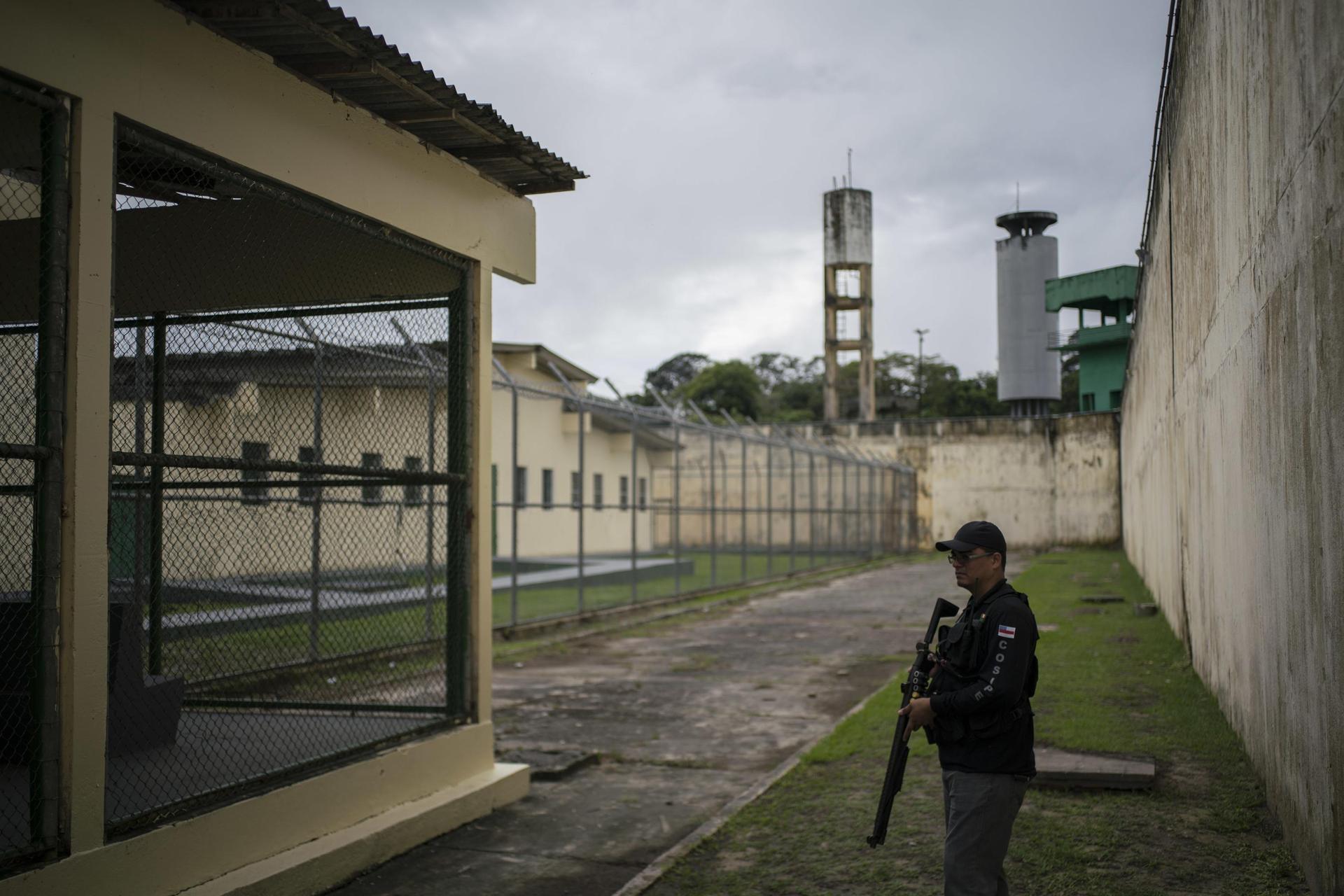SÃO PAULO – During former President Jair Bolsonaro’s administration, prisons in Brazil underwent a process of militarization with the creation of penal police forces and the implementation of martial discipline.
According to the Bishops’ Conference’s Prison Pastoral Ministry, the result was a deterioration of respect for human rights. With the transition to President Luiz Inácio Lula da Silva, Catholic activists and other civic organizations hope that at least part of Bolsonaro’s penal policies can now be reverted.
According to Mayra Balan, a legal assistant with the Prison Pastoral Ministry, the number of complaints of human rights violations received by the organization over the past year and half increased 37 percent, something that demonstrates that the consolidation of the new policies generated more violence.
“Beginning in 2019, there was a federalization of the patterns of torture in Brazil. With the transformation of penal agents in policemen, things became more inhumane,” Balan declared.
The direct consequences of the militarization of prisons include more frequent shock raids – with prisoners kept immobilized and naked for several hours, while dogs inspect them and their cells – and the implementation of harsh restrictions on visits.
“Several measures have been gradually imposed to curtail the prisoners’ right to receive visits. With the COVID-19 pandemic, the situation escalated. Until now, the Prison Pastoral Ministry has not been allowed to resume visits to inmates in some regions,” explained German-born Sister Petra Pfaller, who heads the ministry.
Alleging safety concerns, extraordinary measures have been taken by some penal facilities, like impeding the detainees to gather in the yard during celebrations, for instance.
“Last Christmas, in many prisons the celebrations were conducted with the inmates behind bars. Only in smaller facilities in the countryside the prisoners were allowed to gather in the yard,” Pfaller said.
Family members have also been facing additional hardships, Balan described. They are frequently insulted and mistreated by prison agents, and women many times are submitted to humiliating inspections, during which they must show that they are not smuggling drugs or weapons in their intimate parts.
“Lately, the number and type of items that can be brought to the detainees has been terribly reduced. The state does not provide enough food and hygiene items to incarcerated people and nevertheless forbids their families to supply them,” she said.
The lack of running water in many prisons – it is at times offered only for one hour each day –, energy shortages, and insufficient ventilation were described by many inmates to the Prison Pastoral Ministry as forms of torture. They compose a large part of the organization’s recently published report on human rights’ violations in the Brazilian penal system.
“Torture is not only beating up the detainees. They are more and more aware that the state is torturing them when it deliberately fails to give them food, water, and access to healthcare services,” Pfaller said.
Elaine Bispo Paixão has been accompanying such problems firsthand since 2005, when her husband was first arrested.
“From the beginning, I saw how the system punishes the families. It humiliates us. And that problem has only grown over the past years,” she told Crux.
In 2010, Paixão was waiting in the line to get into her husband’s prison when a colleague invited her to join a social movement for the prisoners’ rights. Nowadays, she struggles for the end of the mass incarceration system in Brazil.
She said that the past four years were especially difficult for the detainees and their families – but the problem is not only Bolsonaro.
“In Bahia State, where I live, the governor was a member of Lula’s Workers’ Party, and the situation of the penal system was equally getting worse,” she argued.
Paixão said that it is perceptible how privatized prisons tend to offer worse conditions than governmental ones. But a number of political leaders who played key roles in implementing them in their states are now working on Lula’s team.
“Lula is a former prisoner. Maybe he is sensible to those issues. But I do not think he will really bring substantial changes when it comes to prisons,” she said.
Mayra Balan recalls that the current legislation on drugs, seen by specialists as one of the main reasons for the mass incarceration in Brazil, was approved during Lula’s administration in 2006.
“Despite that, it is important for us to have a government that at least respects human rights. During Bolsonaro’s tenure, we had to wage a great struggle in order to avoid losing our rights,” she said.
Now, she hopes that the prisoners’ rights’ movements will make some progress in the next few years.
“We will keep mobilized,” Balan said.












